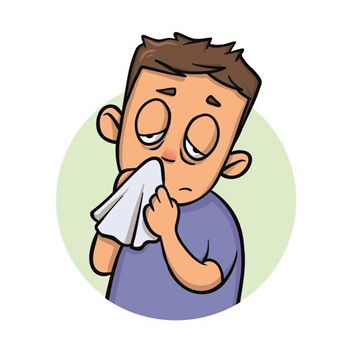Transitioning from fall to winter not only brings in cold weather but also bothersome illnesses. Knowing what these illnesses are and how to prevent them can help students and teachers stay happy and healthy throughout the cold season.
One of the more common winter illnesses is the common cold, a viral infection. This is extremely contagious and spreads when someone who is sick coughs or sneezes. Symptoms of the common cold are a runny nose, sore throat, coughing, and feeling all stuffed up. Some precautions you could take to avoid catching this are to avoid people who are sick, constantly wash your hands, and try to eat to healthy to keep your immune system strong.
In addition to the common cold there is the flu, which is similar to the cold but worse, and can lead to serious illnesses like pneumonia. Similar to the common cold, the flu is also a viral infection and symptoms include having a fever, chills, body aches, and feeling very tired. The best way to prevent this illness is to receive a flu shot, which is a shot that causes the body to produce antibodies to better fight the flu. To prevent the spread of the flu you should be sure to cover your mouth when you sneeze or cough and clean surfaces that get touched often.
Another common illness is strep throat, a bacterial infection, spread through droplets from infected people that coughs or sneeze. Symptoms include a sudden, severe sore throat, pain when swallowing, fever, and swollen lymph nodes. Unlike the common cold, strep doesn’t usually come with a cough or runny nose. If you believe you have strep throat it is important you visit a doctor, as antibiotics are needed to treat this infection. To help prevent strep you should practice good hygiene, avoid sharing eating utensils, and stay away from people who are infected.
Finally, Pneumonia, which is by far the most serious, is a respiratory infection that can be caused by bacteria, viruses, or fungi. It often starts off as just a common cold or the flu and it extremely dangerous for young children, the elderly, and people with weakened immune systems. Symptoms include severe chest pain, fever, chills, cough with phlegm, and difficulty breathing. Ways you could prevent Pneumonia include vaccinations, good hygiene, and avoiding smoking. If you suspect you have Pneumonia you should seek medical attention promptly, as treatment might require antibiotics, antiviral medication, or even hospitalization in severe cases.
All an all, with this cold season coming back around it is good to be aware of the different illnesses and precautions we can take to avoid them.






















